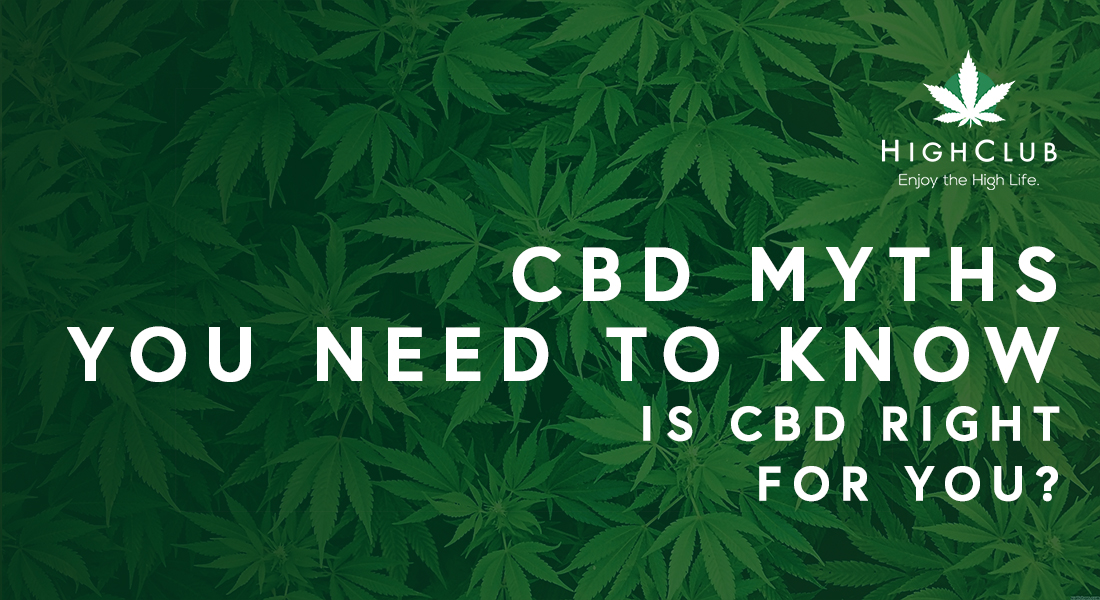Cannabidiol, simply known as CBD, is one of the most popular compounds found in cannabis. Given its famed medicinal qualities, cannabis researchers, experts, and consumers have every reason to celebrate this non-psychoactive compound that is more beneficial than harmful to the human body.
There are a few more reasons as to why the compound is getting increasingly trendy, as more researchers swing to action as they examine its benefits.
For some people, CBD is a miracle, while for others, it’s nothing short of life-changing. Everywhere you look, most people are full of praise for this compound, famed for its anti-inflammatory and seizure-reducing qualities.
What most people do not know is that CBD can also be harmful to some people. Before you buy into the CBD craze, put down that CBD-infused beverage and read this.
Myth: CBD is the only solution
The World Health Organization describes CBD as a well-tolerated compound that is generally safe to use, but not for everyone. CBD is a drug derived from cannabis and it can have negative side effects or contraindications when used with other drugs. According to a 2017 review of CBD studies, side effects from CBD include; fatigue, appetite, weight changes, and diarrhea. Whether you’re trying to treat a serious medical condition like epilepsy, or a common one like insomnia, it’s highly recommended that you talk to a doctor. If your family physician is not comfortable handling CBD, you can seek the attention of one who is. As a rule, always tag along your medical history to help the physician to prescribe the correct CBD-based medicine for you.
Why is it important to talk to a physician first/ Well, because CBD is not your first line of defense. There might be other easier solutions that are available to you, including exercise, or uptake of a vitamin supplement. The first step should be to locate the genesis of your problem.
Myth: Hemp oil is CBD rich
Hemp oil has been in use for centuries, especially in the natural beauty industry. However, with the introduction of cannabis as a legal substance in Canada, most hemp manufacturers are repackaging it as CBD topical creams and edibles. The important point to note is that not all hemp products have CBD. It’s a brilliant idea to buy CBD from licensed sellers as this should help you get to the real dealers of CBD. Hemp dealers do not need a license whereas CBD dealers need to be licensed.
But why is this confusing? Because CBD can also be extracted from the hemp plant. The US Hemp Authority says that hemp is THC cannabis with an ultra-low THC content of less than 0.3%.
At the moment, most Canadian hemp genetics do not have CBD, as it’s only grown for seed, oil, and fiber. Hemp seeds contain trace amounts of CBD, so even when the CBD comes from the hemp plant, you’re sure it’s not coming from the seeds.
Once you have located a licensed cannabis dealer, make sure you get and check the content label from them. Cannabidiol should be listed as an ingredient.
Myth: CBD is legal everywhere
Canada recently passed laws to legalize cannabis. However, under the Canadian Cannabis Act, CBD is a controlled substance. Make sure you procure it from licensed stores and not over the counter.
The Canadian laws also allow citizens to bring in cannabis from domestic flights. Interestingly, you cannot leave Canada with cannabis. If you do, there are harsh consequences awaiting you at the US border, where weed is illegal according to federal laws. If traveling overseas, you should simply leave your stash of cannabis at home.
Myth: CBD is not psychoactive
This is perhaps one of the biggest myths about CBD. Most people believe it’s not psychoactive, but the truth is; it affects the brain in some way, only that it doesn’t impair you. CBD will never give you a high, but it’s mildly psychoactive.
Myth: CBD is great for pain and insomnia
CBD doesn’t directly treat the symptoms of insomnia and pain. Instead, it effectively deals with the symptoms of anxiety and inflammation, which are the cause of insomnia and pain.
CBD, on its own, benefits some people. A good example is the CBD-derived drug Epidiolex that treats epilepsy. It’s important to note that a dose of CBD will not relieve your pain instantly or put you to sleep immediately.
When a CBD product produces instant sleep-inducing effects, it’s likely that it contains myrcene, a sedating terpene.
What makes most people think that a non-psychoactive cannabinoid is universally effective? Well, the CBD-only regime might not give the desired results. In this case, your doctor should recommend a whole plant medicine or a full spectrum drug. CBD, THC, and terpenes work together to deliver an all-round effect, described by Dr. Ethan Russo as the entourage effect.
Myth: A little CBD goes a long way
By December 2019, it will be possible to get a CBD-infused topical or edible at a store near you. Before you even think of getting the CBD-infused edibles, you should talk to your doctor to be duly advised on how CBD affects you.
For some people, a mere 2 mg of CBD goes a long way in making them feel better about their conditions, according to Dustin Sulak. This is not in line with the most conservative studies on mice, that started with at least 10 mg of CBD. To stay safe, make sure to always check the dosage information on the product’s label. In the same way, check your expectations on CBD.

